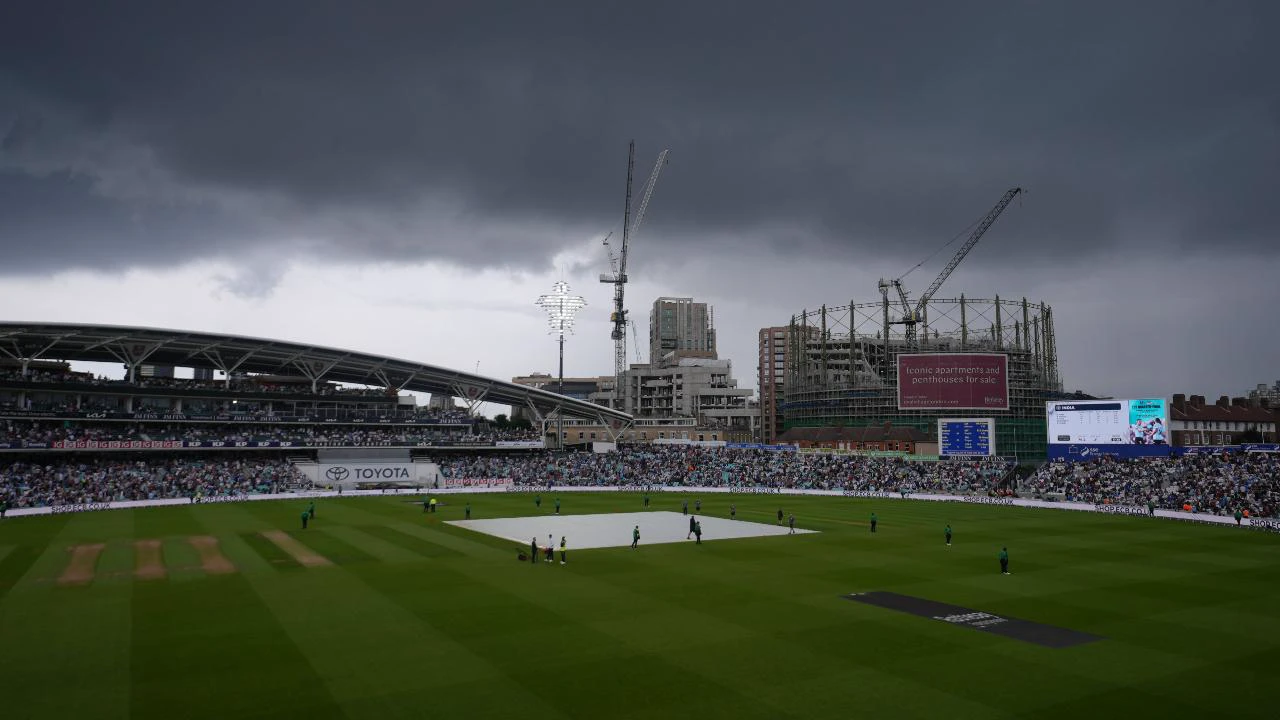The gripping finale of the ongoing Anderson-Tendulkar Trophy faces an uncertain conclusion as inclement weather threatens to overshadow a riveting Day 5 at The Oval.
England stand just 35 runs away from sealing the series 3-1, while India require four wickets to level it 2-2, but both teams may find themselves at the mercy of the weather gods.
The forecast for Monday in London does not bode well. While the opening hour of play, beginning at 3:30 PM IST, is expected to remain dry, the probability of rainfall increases steadily through the day, ranging from 19 percent to as high as 80 percent. With overcast skies already playing a role late on Day 4, and rain, along with bad light, forcing early stumps, the weather could be the ultimate decider of this nail-biting contest.
Set a daunting target of 374, England looked well on course to script their second-highest successful run chase in Test history, and the highest ever at The Oval, courtesy of twin hundreds from Yorkshiremen Joe Root and Harry Brook. Root’s 39th Test century, a composed 105 off 152 balls, was both a masterclass in control and a fitting homage to Graham Thorpe. Brook, reprieved on 19 by Mohammed Siraj, made India pay dearly with a blistering 111 from just 98 deliveries, bringing up his tenth Test ton in style.
The pair added a counter-attacking 195 runs, swinging momentum firmly in England’s favour by the final session. However, India weren’t done yet. With the ball starting to nip around under increasingly gloomy skies, delivered a sensational burst. He dismissed both centurions, Root and debutant Jacob Bethell, in quick succession to peg England back to 339 for 6. Seam movement and disciplined lines began troubling Jamie Smith and Jamie Overton, who remain unbeaten on 2 and 0 respectively.
Just as the match tilted back toward a tense finish, worsening light followed by rain forced umpires to call an early end to Day 4. With the injured sidelined, his arm in a sling, and England’s lower order exposed, the prospect of another dramatic final day lingers.
